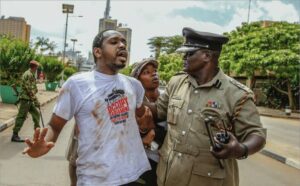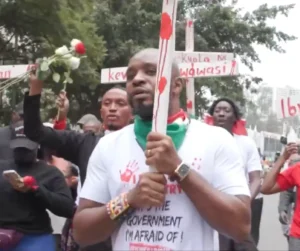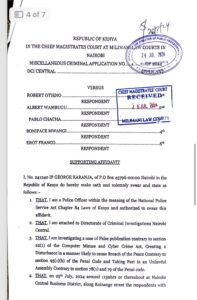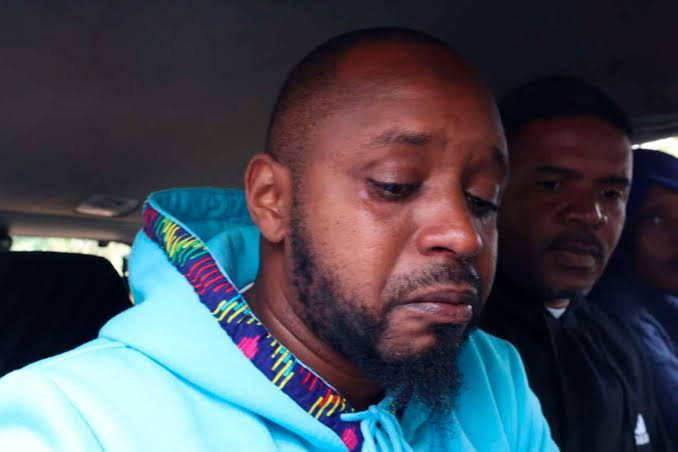The Directorate of Criminal Investigations (DCI) in Kenya has moved to detain prominent activist Boniface Mwangi and four other protesters for 21 days.
The group, which includes Robert Otieno, Albert Wambugu, Pablo Chacha, and Erot Franco, faces serious accusations under several Kenyan laws, including “false publication” (Computer Misuse and Cybercrime Act), “unlawful assembly,” and “incitement.”

Activist Boniface Mwangi being arrested by police during a past altercation
The DCI’s application to the Chief Magistrates Court at Milimani Law Courts, Nairobi, reveals a detailed account of the events leading to the arrests. According to the affidavit sworn by IP George Karanja, the incident occurred on 25th July 2024.
The protesters allegedly caused a significant breach of peace in the Nairobi Central Business District by blocking Koinange Street with a white coffin and seven white crosses inscribed with names. The demonstration, which disrupted traffic and inconvenienced many, was further inflamed by the distribution of T-shirts and placards labelled with incitement words.
The affidavit claims the protesters utilised social media platforms to post allegations that the government was involved in extrajudicial killings. These posts, according to the police, incited members of the public and created widespread unrest.

Activist Boniface Mwangi during a past protests
The police argue that the 21-day detention is crucial for completing their investigations. They need to ascertain the source and intent behind the white coffin and crosses, and establish the financiers of the protest. Additionally, the mobile phones of the suspects have been confiscated for cyber forensic analysis.
One of the most concerning aspects for the police is the unascertained place of abode for the respondents. The DCI argues that releasing the suspects at this stage could jeopardise the investigations.
The case has attracted significant attention, with many viewing it as a test of Kenya’s commitment to freedom of expression and assembly. Boniface Mwangi, a well-known activist, has long been a thorn in the side of the authorities, often using his platform to highlight government corruption and human rights abuses.

Court Statement
As the legal process unfolds, the eyes of the nation and the international community will be on Kenya, watching to see how this high-profile case is handled and its implications for civil liberties in the country.



